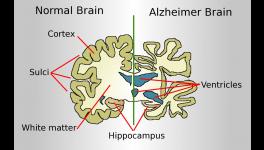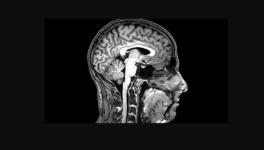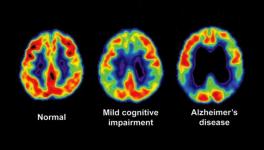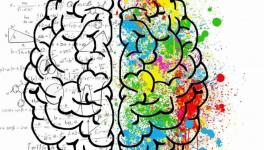The Aging Brain Can Also Generate New Neurons
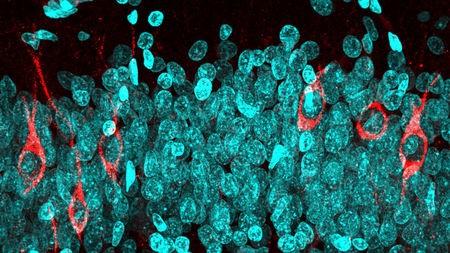
Young neurons glow red in this brain tissue from a 68-year-old. Image courtesy: Science Magazine. Image for representational use only
Can there an upper age limit of neurogenesis—the process through which new neurons are born in the brain? This has been one of the contentious issues in neuroscience, and now the latest Nature paper says that neurogenesis can go on in a brain as old as 87 years. This study also claims that the failure of previous studies to spot these new cells in an aged brain was possibly due to flawed experimental methods.
Researchers have long believed that neurogenesis could be thought of a way out to treat brain disorders, such as depression and Alzheimer’s, where the hallmark is neurodegeneration—loss of neurons. But it was only recently that a Nature study declared that the process ceases by adolescence, contradicting previous findings that reported the ongoing neurogenesis till older days.
“Last year’s Nature study looked for new neurons in 59 samples of human brain tissue, some of which came from brain banks where samples are often immersed in the fixative paraformaldehyde for months or even years. Over time, paraformaldehyde forms bonds between the components that make up neurons, turning the cells into a gel”, says neuroscientist María Llorens-Martín of the Severo Ochoa Molecular Biology Center, Madrid.
“This makes it difficult for fluorescent antibodies to bind to the doublecortin (DCX) protein, which many scientists consider the “gold standard” marker of immature neurons. The number of cells that test positive for DCX in brain tissue declines sharply after just 48 hours in a paraformaldehyde bath, Llorens-Martín and her colleagues reported in Nature Medicine. After six months, detecting new neurons “is almost impossible”.
Immature newly-born neurons express DCX proteins
But in the latest study, the researchers used a shorter fixation time. They took 24 hours to preserve the donated brain tissues from 13 deceased adults that ranged 43 years to 87 years old. They found thousands of DCX-positive cells in the dentate gyrus. The dentate gyrus is a part of the brain area called the Hippocampus—which is involved in learning and memory. The dentate gyrus is thought to contribute to the formation of new episodic memories. The DCX- positive neurons, when observed under the microscope, revealed hallmarks of youth—smooth and plump, having simple undeveloped branches.
From the brain tissue of the youngest person, who died at 43, the team found roughly 42,000 immature neurons per square millimeter of the brain tissue. The team, however, observed that the neurogenesis rate declines with age—a 30% decrease in the numbers of new neurons from youngest to oldest brains in their study. The team also showed that brain tissues of people having Alzheimer’s disease had 30% fewer immature neurons than the healthy brains of the same age. Also, more advanced dementia, fewer such cells. They analysed the brains of 45 deceased Alzheimer’s disease patients that were in the age group of 52 to 97 years.
Get the latest reports & analysis with people's perspective on Protests, movements & deep analytical videos, discussions of the current affairs in your Telegram app. Subscribe to NewsClick's Telegram channel & get Real-Time updates on stories, as they get published on our website.









